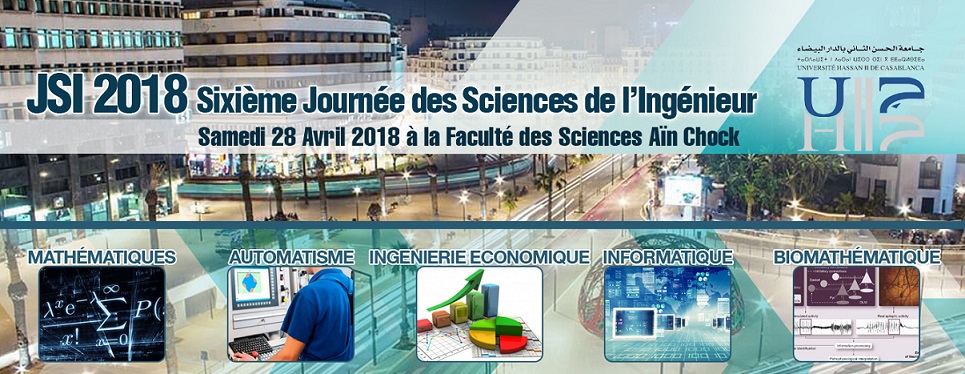Conférencier invité

|
Department of Mathematical Sciences, University of Essex, UK
as@essex.ac.uk |
| |
| |
|
On recent developments in Nature-inspire algorithms for intractable
optimisation problems
|
The class of Nature-inspired algorithms has expanded tremendously in the last few years. There is a good reason for that: they are powerful l tools that work on the most difficult problems often with no assumptions, unlike traditional gradient-based approaches. They are also easy to understand and implement. Their attraction, therefore, is obvious. The downside of this growth is that such algorithms keep on coming and often, little attention is paid to previous related work, leading to similarities and overlaps which contribute to confusing the novice and the potential user with little expertise in this domain and in OR as a discipline.
The Plant Propagation Algorithm or PPA, also known as the Strawberry Algorithm, has been introduced by Salhi and Fraga in 2010. Initially it has been applied to continuous global optimisation. However, it has since been extended to discrete global optimisation with or without constraints and to multi-objective optimisation. Moreover, some theoretical work on the conditions under which it converges has also been carried out.
In this talk I will provide situations where there is indeed overlap and repetition. But, I will concentrate on PPA as a potent tool for a variety of problem classes in optimisation. Variants of it will be presented and computational results will be provided. |
| |
References:
A. Salhi and E. S. Fraga, “Nature-inspired optimisation approaches and the new plant propagation algorithm,” Proceedings of the ICeMATH2011, pp. K2–1 to K2–8, 2011.
N. Brahimi, A.Salhi, and M.Ourbih-Tari, “Drift analysis of ant colony optimization of stochastic linear pseudo-Boolean functions”, Operations Research Letters, Vol.45, pp.342-347, 2017.
N. Brahimi, A.Salhi, and M.Ourbih-Tari, “Convergence analysis of the plant
propagation algorithm for continuous global optimization” to appear in RAIRO Operations Research, DOI: 10.1051/ro/2017037, 2017.
M. Cheraitia, S. Haddadi, and A. Salhi, “ Hybridizing plant propagation and local search for uncapacitated exam scheduling problems”, to appear in International Journal of Services and Operations Management , 2017. Online http://www.inderscience.com/info/ingeneral/forthcoming.php?jcode=ijsom
C.M. Taylor and A. Salhi, “On partitioning multivariate self-affine time series”, IEEE Transaction on Evolutionary Computation, Vol.12, No. 6, pp. 845-862, 2017.
M. Sulaiman, A. Salhi, B. I. Selamoglu, and O. B. Kirikchi, “A plant propagation
algorithm for constrained engineering optimisation problems,” Mathematical Problems in Engineering, 2014. doi:10.1155/2014/627416.
M. Sulaiman and A. Salhi, “A hybridisation of runner-based and seed-based plant
propagation algorithms,” in Nature-Inspired Computation in Engineering, pp. 195–215, Springer 127, 2016.
M. Sulaiman and A. Salhi, “A seed-based plant propagation algorithm: the feeding
station model,” The Scientific World Journal, vol. 2015, 2015.
M. Sulaiman, A. Salhi, E. S. Fraga, W. K. Mashwani, and M. M. Rashidi, “A novel plant propagation algorithm: Modifications and implementation,” Science International, vol. 28, no. 1, pp. 201–209, 2016.
B. I. Selamoglu and A. Salhi, “The plant propagation algorithm for discrete optimisation: The case of the Travelling Salesman Problem,” in Nature-Inspired Computation in Engineering, pp. 43–61, Springer 127, 2016.
B. I. Selamoglu, A. Salhi, and M. Sulaiman, “Strip algorithms as an efficient way to
initialise population-based metaheuristics,” in Recent Developments in Metaheuristics (F. Y. L. Amodeo, E-G. Talbi, eds.), Springer, 2017 (to appear).
A. Salhi and J. A. V. Rodríguez, “Tailoring hyper-heuristics to specific instances of a
scheduling problem using affinity and competence functions,” Journal of Memetic Computing, vol. 6, no. 2, pp. 77–84, 2014.
A. Salhi, “The ultimate solution approach to intractable problems,” in Proceedings
of the 6th IMT-GT Conference on Mathematics, Statistics and its Applications, pp. 84–93, 2010. |
| |
|

